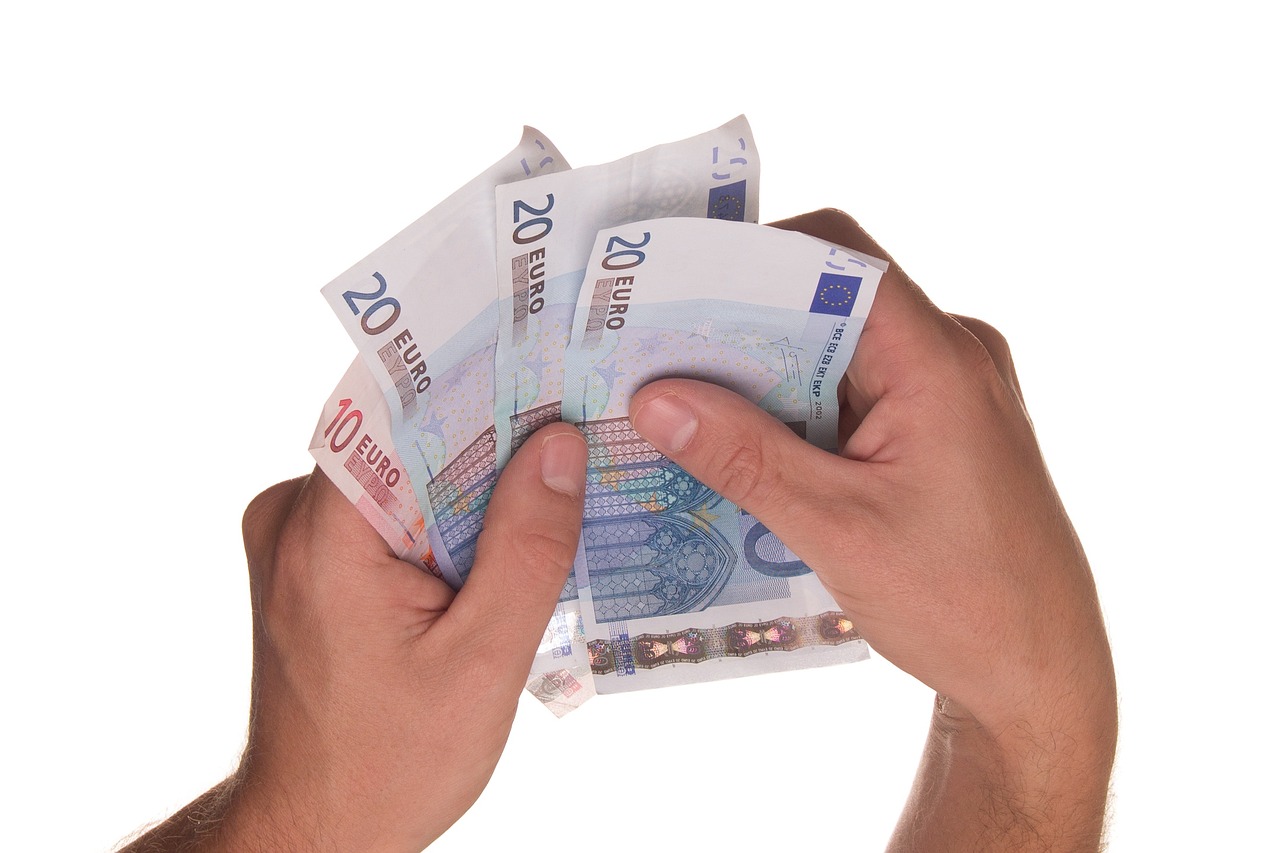Uncovering the Truth: Navigating Currency Exchange in Spain
GPT_Global - 2024-02-05 15:30:07.0 1154
Are there any restrictions on exchanging money in Spain?
Spain is known for its vibrant culture, beautiful beaches, and delicious cuisine. However, if you are travelling to Spain or have loved ones living there, it is important to understand the restrictions on exchanging money. As a remittance business, we want to ensure that our customers have all the necessary information before sending money to Spain.
The first thing to note is that there are no restrictions on bringing foreign currency into Spain, as long as it is declared at customs. However, if you are carrying more than 10,000 euros, you must declare it upon entering the country. This is to prevent money laundering and other illegal activities.
If you need to exchange your foreign currency for euros in Spain, you can do so at banks, exchange offices, and some hotels. However, it is important to keep in mind that exchange rates and fees may vary. Therefore, it is advisable to shop around for the best rates before making the exchange. Some reputable exchange offices in Spain include Global Exchange and Eurochange.
When sending money to Spain through a remittance service, it is important to note that there are certain restrictions in place. In accordance with anti-money laundering regulations, remittance companies are required to verify the identity of their customers and the source of funds. This may involve providing personal identification and proof of income documents.
Additionally, there are limits on the amount of money that can be sent without documentation. For example, in Spain, individuals can send up to 1,000 euros without presenting any additional documents. Any amount above this limit will require proper documentation and justification.
It is also worth noting that remittance companies are closely monitored by regulatory bodies to ensure compliance with laws and regulations. Therefore, it is important to choose a reputable and licensed remittance provider to ensure the safety and security of your funds.
In conclusion, while there are no major restrictions on exchanging money in Spain, it is important to be aware of the laws and regulations in place. Whether you are travelling to Spain or sending money to loved ones, understanding these restrictions will help ensure a smooth and hassle-free experience. As a remittance business, we are committed to providing our customers with transparent and reliable services for all their money exchange needs.

How does the value of the Spanish currency fluctuate?
Spain is a popular destination for immigrants and expats from all around the world. With its rich culture, delicious cuisine, and beautiful landscapes, it's easy to see why so many people choose to live in this European country. However, for those who have family or friends back in their home country, one thing that they might need to keep in mind is the fluctuation of the Spanish currency, the Euro. As an important aspect of remittance business, understanding how the value of the Spanish currency changes is crucial for sending and receiving money.
Like any other currency, the value of the Euro is affected by various factors such as economic performance, political stability, and global market trends. A strong Spanish economy generally results in a higher value for the Euro, making it more expensive to exchange for other currencies. On the other hand, a weak economy could lead to a decrease in the value of the Euro, making it more affordable for foreign exchange.
One major factor that can impact the value of the Euro is the interest rate set by the European Central Bank (ECB). Higher interest rates tend to attract foreign investors, increasing the demand for the Euro and driving up its value. Conversely, lower interest rates can discourage investment, leading to a decrease in the value of the Euro.
Another factor that can influence the value of the Euro is the political climate in Spain and the European Union. Political instability or uncertainty can cause fluctuations in the currency's value, as investors may be more hesitant to invest in a country with potential risks.
The value of the Euro is also affected by global events and market trends. For instance, if there is a rise in the demand for commodities from Spain, such as olive oil or wine, this could increase the value of the Euro. Likewise, if there is a decline in demand for these products, the value of the Euro may decrease.
In conclusion, the value of the Spanish currency, the Euro, is subject to various factors such as economic performance, interest rates, political stability, and global market trends. As a result, it is essential for those involved in remittance business to stay informed about these factors to make the most out of their money transfers. By understanding how the value of the Euro fluctuates, you can plan your remittance strategy and ensure that your loved ones receive the most value for their money.
Is it better to exchange money before or after arriving in Spain?
When planning a trip to Spain, one important factor to consider is how to handle currency exchange. While it may seem more convenient to exchange money before leaving for your trip, there are several benefits to waiting until after arriving in Spain. Here are some reasons why exchanging money after arrival may be the better option.
Firstly, exchanging money before your trip means you have to estimate how much currency you will need. This can be tricky and often leads to either over or underestimating your spending. By waiting until after you arrive in Spain, you can get a better sense of your expenses and only exchange the necessary amount.
In addition, exchanging money before your trip usually comes with high fees and unfavorable exchange rates. On the other hand, exchanging money in Spain through a reputable remittance business can offer better rates and lower fees. This can save you money in the long run and make your trip more affordable.
Moreover, exchanging money in Spain also allows you to have access to local currency, which is essential for certain transactions such as buying tickets for public transportation or shopping at local markets. It also eliminates the hassle of carrying large amounts of cash with you during your travels.
Lastly, by exchanging money in Spain, you support the local economy. Many remittance businesses are small, local businesses that rely on tourist transactions. By using their services, you contribute to the growth and sustainability of the Spanish economy.
In conclusion, while it may seem more convenient to exchange money before arriving in Spain, waiting until after your arrival offers more advantages. From better exchange rates and lower fees to supporting the local economy, exchanging money in Spain through a reputable remittance business is the smarter choice for travelers. So, save yourself the hassle and consider waiting until after arriving in Spain to exchange your money.
Are there any risks associated with carrying large amounts of cash in Spain?
When traveling to Spain, it is important to consider the risks associated with carrying large amounts of cash. While cash may seem like a convenient form of payment, there are several drawbacks and potential dangers that should be taken into consideration. As a remittance business, it is our responsibility to inform our clients about the potential risks they may face while carrying large amounts of cash in Spain.
Firstly, carrying large amounts of cash makes you a target for theft. Tourists are often at risk of being targeted by pickpockets and thieves, and openly displaying cash can make you an easy target. It is always safer to keep your money in a secure place such as a bank account or use alternative methods of payment such as credit cards or traveler's checks.
Moreover, if your cash is lost or stolen, it can be difficult and time-consuming to recover it. You may have to file a police report and provide proof of ownership before you can receive reimbursement. This process can be particularly challenging if you are traveling and do not have easy access to necessary documents.
Another risk associated with carrying large amounts of cash in Spain is the possibility of encountering counterfeit money. As a popular tourist destination, Spain has a high rate of counterfeit notes in circulation. This means that there is a chance you may receive counterfeit money when making purchases. Additionally, it can be difficult to spot counterfeit notes, and if you unknowingly use one, you may face legal consequences.
Lastly, carrying large amounts of cash can also be a hassle when it comes to budgeting and keeping track of expenses. It may be tempting to overspend when you have easy access to cash, leading to financial strain during your travels. It is recommended to plan ahead and only carry the amount of cash that you need for your immediate expenses.
In conclusion, while cash may seem like a convenient form of payment, there are significant risks involved with carrying large amounts of it in Spain. As a remittance business, we advise our clients to explore safer and more secure options such as electronic transfers or using credit cards. This not only protects them from potential risks but also provides a more efficient way of managing their finances while traveling.
Does Spain have any regulations on foreign currency transactions?
The answer to whether Spain has any regulations on foreign currency transactions is yes, it does. As a member of the European Union, Spain follows the rules and regulations set by the European Central Bank (ECB). The ECB has policies in place to ensure that foreign currency transactions are carried out safely and efficiently.
One of the main regulations in Spain regarding foreign currency transactions is the requirement for individuals or businesses to use authorized payment institutions. These are companies that are licensed and regulated by the Spanish government to provide foreign exchange services. By using an authorized payment institution, individuals and businesses can have peace of mind knowing that their transactions are legitimate and safe.
In addition, there are limits on the amount of foreign currency that can be brought into or taken out of Spain. For individuals, the limit is €10,000 or the equivalent in another currency. If someone wants to bring in or take out more than this amount, they must declare it to Spanish customs and provide documentation to prove the source and purpose of the funds. This regulation helps prevent money laundering and other illegal activities.
When it comes to remittance business, there are specific regulations and requirements that companies must follow in order to operate in Spain. Remittance businesses must obtain a license from the Bank of Spain and comply with reporting and transparency measures. This ensures that remittance companies are following the same regulations and standards as other financial institutions in the country.
In conclusion, Spain has strict regulations in place for foreign currency transactions to ensure the safety and legitimacy of these transactions. By using authorized payment institutions and complying with reporting and licensing requirements, individuals and businesses can engage in foreign currency transactions with confidence and peace of mind. It is important for anyone engaging in these types of transactions in Spain to be aware of and follow these regulations to avoid any potential legal issues.
Are there any specific locations or banks recommended for exchanging money in Spain?
Spain is a popular destination for tourists and expats alike, making it necessary for many to exchange their currency for the local Euro. When it comes to exchanging money in Spain, there are a few key locations and banks that are recommended for those looking to get the best rates and service.
The first recommendation is to avoid exchanging money at airports or tourist areas. These locations often have higher fees and less favorable exchange rates compared to other places. It's best to plan ahead and exchange money before arriving in Spain or seek out reputable locations outside of tourist hotspots.
Another option is to use ATMs, which can be found throughout Spain and are typically connected to major international networks. This can be a convenient way to exchange money, but be aware of any additional fees that may be charged by your bank for using an international ATM.
For those who prefer to exchange money at a physical location, there are several banks in Spain that are known for providing good rates and services. Some of the top recommendations include Banco de España, Bankia, and BBVA. These banks often have English-speaking staff and lower fees compared to other options.
If you are sending money to Spain from abroad, using a remittance service can also be a good option. These services specialize in international money transfers and can often offer competitive exchange rates and lower fees compared to traditional banks. Popular remittance companies in Spain include TransferWise, WorldRemit, and PayPal.
In conclusion, when it comes to exchanging money in Spain, it's important to do some research and choose a trusted location or service. Avoid exchanging money at airports or heavily touristy areas and consider using ATMs or reputable banks for the best rates and service. Additionally, utilizing a remittance service can be a good alternative for those sending money to Spain from abroad. Keep these tips in mind to get the most value from your currency exchange in Spain.
Can you use traveler's checks in Spain?
Traveler's checks were once a popular option for people traveling abroad, offering a safe and convenient way to carry money. However, with the rise of digital banking and credit cards, traveler's checks have become less common. If you are planning a trip to Spain, you may be wondering if you can still use traveler's checks there. The short answer is yes, traveler's checks are accepted in Spain. They can be exchanged or cashed at most major banks and currency exchange offices. However, it is important to note that not all businesses in Spain will accept traveler's checks as a form of payment. One thing to keep in mind is that traveler's checks come with a fee. When purchasing them, you will pay a fee to convert your money into traveler's checks, and when using them in Spain, you may also be charged an additional fee for the transaction. Therefore, it is always a good idea to compare the fees associated with traveler's checks to other forms of currency exchange, such as using an ATM or using a credit card. Another factor to consider is the exchange rate. When you use a traveler's check, the exchange rate may not be as favorable as using a credit card or withdrawing money from an ATM. It is important to do your research and compare exchange rates to ensure you are getting the best deal. Additionally, traveler's checks may be more difficult to use in smaller towns and villages in Spain. While major cities and tourist areas will likely accept them, smaller establishments may not. It is always a good idea to have a backup plan in case your traveler's checks are not accepted. If you do plan on using traveler's checks in Spain, be sure to keep track of their serial numbers and receipts. In the event of loss or theft, you will need this information in order to receive a refund. It is also important to note that traveler's checks never expire, so you can always use them on future trips even if you don't use them all during your stay in Spain. In conclusion, traveler's checks can still be used in Spain, but they may not be the most convenient or cost-effective option. It is always a good idea to research and compare different methods of currency exchange before traveling. Keep in mind that while traveler's checks may offer security and peace of mind, they may come with added fees and limitations.What protections are in place to prevent counterfeiting of Spanish money?
When it comes to remittance, one of the biggest concerns is the risk of counterfeit money. This is a serious issue that not only affects the remittance business, but also puts the financial security of individuals and businesses at risk. Fortunately, there are several measures in place to prevent counterfeiting of Spanish money.
Firstly, the European Central Bank (ECB) is responsible for overseeing the production and distribution of euro banknotes and coins, which are the official currency used in Spain. The ECB works closely with national central banks to ensure that all euro banknotes and coins meet strict security standards.
In addition, the euro banknotes and coins have many security features that make them difficult to counterfeit. These include watermarks, holograms, and special printing techniques that are nearly impossible to replicate. This makes it easier for individuals and businesses to spot fake money and avoid becoming victims of counterfeiting.
The National Police, along with other law enforcement agencies, also play a crucial role in preventing counterfeiting of Spanish money. They regularly conduct investigations and raids to identify and dismantle operations involved in producing and distributing fake money. Their efforts have resulted in a significant decrease in the amount of counterfeit money in circulation.
Furthermore, banks and financial institutions have their own internal measures to detect and prevent the use of counterfeit money. They use advanced technology such as counterfeit detection machines to verify the authenticity of banknotes and coins. They also train their employees to recognize fake money and report any suspicious activity.
Overall, there are robust protections in place to prevent counterfeiting of Spanish money, making it safer for individuals and businesses to use and accept euro banknotes and coins. These measures are constantly being updated and improved to stay ahead of the ever-evolving tactics of counterfeiters. With these safeguards, the remittance business in Spain can continue to thrive and provide a secure means of sending and receiving money across borders.
About Panda Remit
Panda Remit is committed to providing global users with more convenient, safe, reliable, and affordable online cross-border remittance services。
International remittance services from more than 30 countries/regions around the world are now available: including Japan, Hong Kong, Europe, the United States, Australia, and other markets, and are recognized and trusted by millions of users around the world.
Visit Panda Remit Official Website or Download PandaRemit App, to learn more about remittance info.


